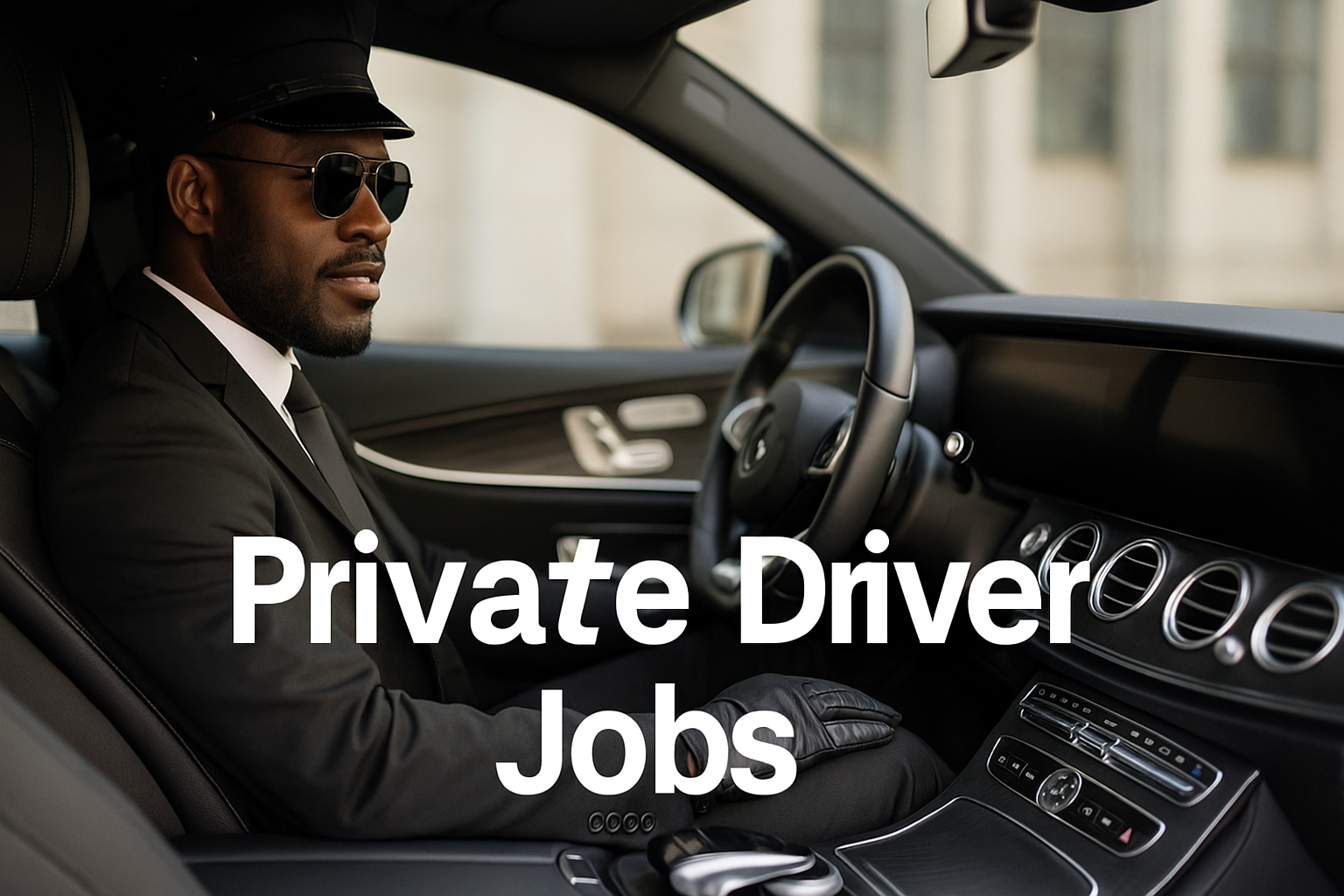Exploring the World of Private Driver Jobs in the U.S.
Private driver jobs in the U.S. are expanding as personal transport becomes more specialized. Today’s drivers serve executives, families, and concierge clients, offering flexibility, good pay, and access to high-end work. Whether full-time or contract-based, understanding the industry’s scope, licensing, and earning potential is key to lasting success.

Understanding Private Driver Careers in 2025
Private drivers form a crucial part of the U.S. transportation ecosystem, providing tailored and secure travel experiences to individuals, corporate clients, and VIP travelers. These roles include personal chauffeurs, executive drivers, airport transfer specialists, and luxury transport operators. With companies emphasizing client experience and discretion, demand for trained, reliable drivers continues to rise—particularly in metropolitan areas like New York, Los Angeles, Miami, and Dallas, where private transport is an everyday need for business executives and high-net-worth individuals.
Private driver positions are not limited to luxury settings; they also include family transport, medical chauffeur services, and high-demand concierge logistics for travel management firms. The shift toward private and semi-private transport—accelerated by health-conscious post-pandemic travel habits—has cemented driving as a stable, professional career path.
Qualifications and Licensing Requirements
Most private driver jobs in the U.S. require a valid state driver’s license, clean driving record, and professional demeanor. However, certain employers, especially luxury transportation companies and corporate clients, may request additional credentials such as a Commercial Driver’s License (CDL) or a Passenger Endorsement (P) for vehicles carrying multiple passengers.
In major cities, background checks and drug screenings are standard. Drivers often undergo training in defensive driving, navigation systems, and customer service etiquette to ensure passenger safety and satisfaction. For executive-level roles, certification from organizations like the National Limousine Association (NLA) or Smith System Driver Improvement Institute can give candidates a competitive edge.
Types of Private Driver Jobs Available in the U.S.
Private driver positions vary widely depending on the employer and client needs. Some of the most common categories include:
- Personal Chauffeurs: Full-time drivers employed by individuals or families, often responsible for daily commutes, school runs, and errands.
- Corporate Drivers: Employed by companies to transport executives and clients to meetings, airports, and events.
- Luxury Transport Drivers: Work with high-end limousine or black car services, typically requiring strong customer service skills.
- Rideshare and Contract Drivers: Flexible gig-style roles with companies like Uber Black or Lyft Lux, where drivers use premium vehicles for high-value clients.
- Medical or Senior Transport Drivers: Assist elderly or disabled passengers in attending appointments safely and comfortably.
The flexibility in employment type—ranging from full-time salaried positions to freelance arrangements—makes this career suitable for diverse lifestyles and income goals.
Salary Range and Earnings Potential
Compensation in private driving depends on several factors: location, experience, vehicle type, and client profile. In 2025, the average annual salary for private drivers ranges from $45,000 to $85,000, with luxury or corporate chauffeurs earning more. Top-tier executive drivers in cities like New York or San Francisco can exceed $100,000 annually, often including bonuses and tips.
Rideshare-based private drivers, while independent, benefit from flexible scheduling and surge pricing opportunities during peak hours or high-demand events. Additionally, drivers who maintain high client satisfaction ratings can secure repeat business, private contracts, and premium pay rates through referral-based work.
Essential Skills and Attributes for Success
Being a successful private driver requires more than just technical driving skill. Employers and clients look for:
- Professionalism and confidentiality – especially when serving corporate or high-profile clients.
- Punctuality and reliability – adherence to schedules is critical.
- Knowledge of local routes and traffic patterns.
- Customer service and communication skills – creating a comfortable passenger experience.
- Vehicle maintenance awareness – ensuring the car is always clean, fueled, and safe.
In the digital age, familiarity with navigation apps, scheduling software, and GPS fleet systems can make a driver more efficient and tech-savvy—qualities that employers value highly.
Work Environments and Daily Responsibilities
A typical day for a private driver might involve airport transfers, business meetings, school pickups, and leisure travel. Drivers often begin early, review routes and traffic updates, and maintain contact with dispatchers or employers throughout the day. Cleanliness and presentation of the vehicle are key daily responsibilities.
Some roles require on-call availability, particularly for executives or families with irregular schedules. While long hours can occur, the independence of the role and personal interaction with clients often make the work rewarding. For many professionals, driving is more than transportation—it’s a customer experience service.
Career Growth and Future Trends
The private driver sector is set to evolve with electric vehicles (EVs), AI-assisted navigation, and concierge transportation platforms. Luxury fleet companies are integrating eco-friendly fleets and subscription-based services, creating new technical roles in vehicle management and logistics coordination.
Ambitious drivers can advance into fleet management, operations supervision, or private transport consultancy—roles that combine experience with leadership. Others choose entrepreneurship by establishing independent car services catering to niche clientele such as executives, tourists, or senior citizens.